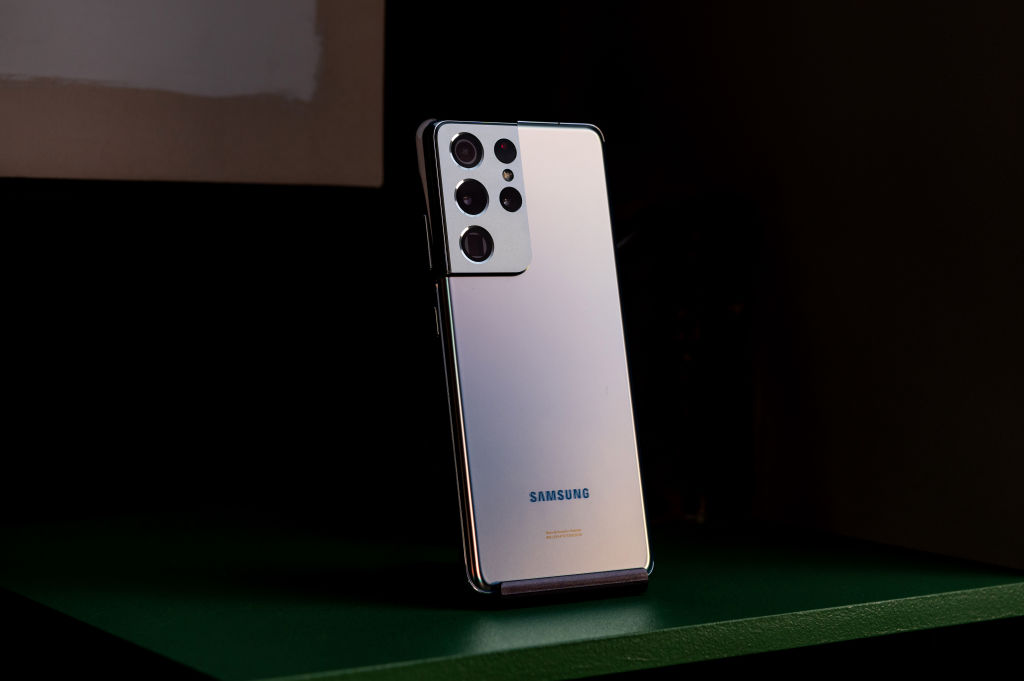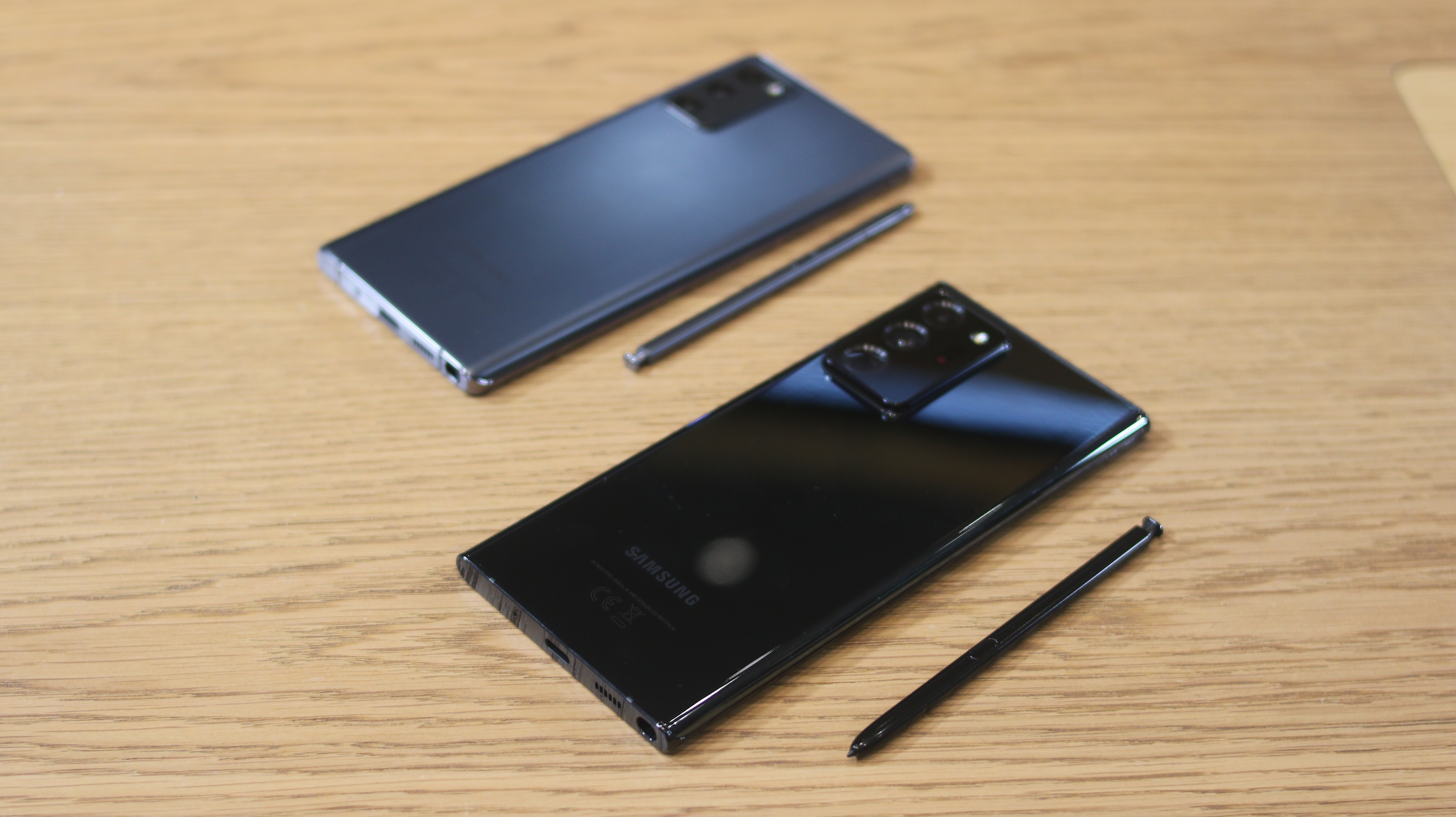100 million Samsung Galaxy devices vulnerable to cryptographic key hack
Widespread flaws in hardware-backed key management could enable hackers to bypass FIDO2 authentication


Sign up today and you will receive a free copy of our Future Focus 2025 report - the leading guidance on AI, cybersecurity and other IT challenges as per 700+ senior executives
You are now subscribed
Your newsletter sign-up was successful
Researchers have found “severe” security flaws in a long line of flagship smartphones made by Samsung whereby attackers can lift cryptographic keys.
Potentially affecting around 100 million Samsung devices including the Galaxy S21, Galaxy S20, and others dating back to the Galaxy S8, attackers can remotely lift cryptographic keys to bypass security authentication standards such as FIDO2.
Real-world applications of the vulnerabilities could see attackers extracting keys used for secure payments such as those made through Google Pay, and bypassing FIDO2 authentication which is often used in place of account passwords.
The researchers from Tel-Aviv University demonstrated how two feasible real-world attacks can be performed on even the latest Samsung devices. Said attacks allowed the researchers to extract cryptographic keys from hardware-protected elements of the device, and downgrade devices so that they’re vulnerable to these attacks, known as IV reuse attacks.
They explained how ARM devices use TrustZone technology which essentially splits a device into two parts: the ‘Normal World’ where normal applications on an operating system (OS) like Android can run; and the ‘Secure World’ which is essentially an isolated environment in which only trusted applications, like those critical to device security, are supposedly able to run.
The Android Keystore provides hardware-backed cryptographic key management via the Keymaster Hardware Abstraction Layer (HAL) and this is implemented in the Secure World of the TrustZone, where processes are not supposed to be accessed from the outside.
Cryptographic keys are protected here using the AES-GCM encryption standard, but Samsung’s implementation of Keystore, which allows keys to be retrieved and stored (while wrapped by an encrypted layer) from the Secure World by apps operating in the Normal World, is flawed.
Sign up today and you will receive a free copy of our Future Focus 2025 report - the leading guidance on AI, cybersecurity and other IT challenges as per 700+ senior executives
This allows an attacker to predictably obtain the cryptographic keys if they know the contents of one plaintext sample encrypted using AES-GCM. The encryption standard protects items using the same key and relies on unique initialization vectors (IVs) never being reused.
The researchers were able to show how Samsung devices were vulnerable to the IV reuse attack, allowing attackers to assign IVs as part of the key parameters.
In approaching the research, the academics assumed an attacker could fully compromise the Normal World through mechanisms such as malware granting root privileges. The attacker would not need to be able to run code in the Android kernel, just be able to execute code in the Android user mode.
The researchers disclosed their findings to Samsung in August 2021 and the manufacturer addressed the issues by publishing the flaws to the Common Vulnerabilities and Exposures (CVE) register.
The initial IV reuse attack is tracked as CVE-2021-25444 with a ‘high’ severity rating, and patched in August 2021.
The downgrade attack which allowed newer devices, such as the Samsung Galaxy S20 and S21, to become vulnerable to the IV reuse attack, was patched in October 2021 after its CVE (CVE-2021-25490) addressed the issue for all devices running Android 9 or later.
Although Samsung's latest Galaxy S22 devices are also based on ARM architecture, they will not ship with OS versions before Android 9 as standard and as such will theoretically not be vulnerable to the researcher's attack.
"Samsung takes the security of Galaxy devices seriously. We are constantly looking for ways to enhance the security of our products and welcome any input from research communities," the company told IT Pro.
"The reported issue was acknowledged and has been addressed through security updates since August 2021. We recommend our users to keep their devices updated with the latest software to enjoy safe and convenient Galaxy mobile experiences."

Connor Jones has been at the forefront of global cyber security news coverage for the past few years, breaking developments on major stories such as LockBit’s ransomware attack on Royal Mail International, and many others. He has also made sporadic appearances on the ITPro Podcast discussing topics from home desk setups all the way to hacking systems using prosthetic limbs. He has a master’s degree in Magazine Journalism from the University of Sheffield, and has previously written for the likes of Red Bull Esports and UNILAD tech during his career that started in 2015.
-
 Agile methodology might be turning 25, but it’s withstood the test of time
Agile methodology might be turning 25, but it’s withstood the test of timeNews While Agile development practices are 25 years old, the longevity of the approach is testament to its impact – and it's once again in the spotlight in the age of generative AI.
-
 Will a generative engine optimization manager be your next big hire?
Will a generative engine optimization manager be your next big hire?In-depth Generative AI is transforming online search and companies are recruiting to improve how they appear in chatbot answers
-
 Protecting your business with mobile device security
Protecting your business with mobile device securityIT leaders face multiple challenges in today’s landscape – secure, frictionless mobile device security helps solve them
-
 This new Android attack could let hackers swipe 2FA codes and snoop on private messages – ‘Pixnapping’ affects Samsung and Google smartphones, but experts warn more could be at risk
This new Android attack could let hackers swipe 2FA codes and snoop on private messages – ‘Pixnapping’ affects Samsung and Google smartphones, but experts warn more could be at riskNews Pixnapping allows attackers to steal two-factor authentication (2FA) codes, private messages, and even financial information.
-
 Researcher awarded $50,000 for discovering Samsung Galaxy S21 hack
Researcher awarded $50,000 for discovering Samsung Galaxy S21 hackNews UK researcher Sam Thomas won the Pwn2Own bounty using a "unique three-bug chain"
-
 Samsung to support enterprise devices with five years of Android updates
Samsung to support enterprise devices with five years of Android updatesNews Samsung Galaxy S20, S21 and Note 20 series phones are among the devices set to benefit from extended support
-
 Samsung laptops open to hackers after Windows Update disabled
Samsung laptops open to hackers after Windows Update disabledNews Security researchers warn of serious risks as Samsung overrides key security feature
-
 Samsung to roll out security patch for keyboard vulnerability
Samsung to roll out security patch for keyboard vulnerabilityNews Bug exposing Galaxy smartphones to hackers will be squashed within coming days
-
 Samsung denies Smart TV could eavesdrop on users' conversations
Samsung denies Smart TV could eavesdrop on users' conversationsNews South Korean firm plays down reports of digital snooping, after privacy policy prompts alarm bells
-
 Research team highlights Android NFC security holes
Research team highlights Android NFC security holesNews Two zero day vulnerabilities let security boffins hack Samsung Galaxy S3 phone using NFC.